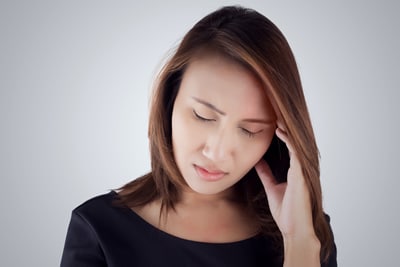Reclaim your emotional health through therapeutic therapy for anxiety
Reclaim your emotional health through therapeutic therapy for anxiety
Blog Article
Discovering Various Methods in Counselling for Stress And Anxiety Disorder for Enduring Change
When taking on anxiousness disorders, it's necessary to discover a selection of therapy strategies. Each method provides special insights and tools to help you handle your signs efficiently. You may discover that integrating methods can generate the most effective results. Nonetheless, understanding the subtleties of these strategies is key to promoting long-term change. What if the best mix could launch a brand-new degree of emotional well-being for you?
Recognizing Anxiety Conditions: A Quick Review
Stress and anxiety problems, which affect countless individuals worldwide, can substantially influence daily life. You might experience frustrating feelings of worry or stress that appear irrepressible. These feelings can cause physical signs and symptoms like a racing heart, sweating, or even wooziness. Common sorts of anxiousness problems consist of generalized anxiety condition, panic disorder, and social anxiousness condition. Each has one-of-a-kind indications, but they all share a propensity to disrupt your routine and relationships.Understanding the origin triggers of your anxiousness is crucial. It may stem from genes, mind chemistry, or life experiences. Acknowledging your triggers can help you handle your feedbacks much better. It is essential to bear in mind that you're not alone in this struggle. Lots of people face similar challenges, and seeking aid is a solid action towards sensation much better. By finding out about anxiety problems, you're already on the course to understanding and managing your condition better.
Cognitive-Behavioral Therapy: Testing Negative Thought Patterns
In Cognitive-Behavioral Treatment, you'll begin by recognizing the negative thought causes that contribute to your anxiousness. You'll work on replacing them with even more favorable choices once you recognize these ideas. Together, you'll develop reliable coping approaches to help manage your anxiety in everyday situations.
Identifying Unfavorable Idea Triggers

Recognizing the specific triggers behind your adverse ideas can be crucial in managing anxiousness when you run into minutes of distress. Beginning by paying focus to scenarios that prompt sensations of fear or concern. Is it a jampacked room, a future due date, or a discussion with specific people? Write these circumstances in a journal. This will certainly aid you identify patterns in your thinking. Notice physical sensations that accompany your adverse ideas, like a racing heart or tightness in your chest. By determining these triggers, you acquire insight into what's fueling your anxiousness. Understanding these links is the primary step in challenging those thoughts and eventually gaining back control over your psychological actions.
Changing Thoughts With Positives
Testing negative thought patterns is a vital action in transforming your mindset and decreasing anxiousness. You might frequently find on your own entraped in cycles of insecurity or catastrophic thinking. Rather than letting these ideas dictate your sensations, practice changing them with practical alternatives or favorable affirmations. As an example, when you think, "I can't handle this," shift it to, "I can manage challenges one step at a time." This easy modification can greatly affect your emotional state. Frequently identifying and countering these negative ideas assists create a healthier internal dialogue. Bear in mind, it requires time and initiative, however continually practicing this strategy can cause enduring modification, empowering you to encounter stress and anxiety with renewed confidence and resilience.
Structure Coping Approaches With Each Other
Changing adverse ideas is only the beginning of managing anxiety successfully. To develop lasting modification, you need to construct coping strategies that encourage you. Cognitive-Behavioral Treatment (CBT) assists you recognize and challenge those purposeless thought patterns. Together, you and your counselor can discover how these ideas influence your feelings and behaviors.Start by establishing useful methods, like journaling or mindfulness exercises, that enable you to face stress and anxiety head-on. When you encounter your worries gradually, you'll discover to react in different ways.

Mindfulness and Acceptance-Based Approaches: Growing Present-Moment Understanding
As you navigate the complexities of stress and anxiety, incorporating mindfulness and acceptance-based approaches can significantly improve your capacity to cultivate present-moment understanding. By concentrating on the here and currently, you'll locate that you can observe your thoughts and feelings without judgment (Counseling services for anxiety). This practice helps you acknowledge your stress and anxiety without feeling bewildered by it.Engaging in mindfulness workouts, such as deep breathing, body scans, or assisted reflections, permits you to ground yourself in your existing experience. Acceptance-based approaches motivate you to accept your feelings as opposed to battle against them. When you accept your sensations, they shed their power over you.Incorporating these practices right into your daily regimen can transform just how you react to stress and anxiety. You'll create resilience and find out to navigate difficult scenarios with greater ease. Inevitably, growing present-moment understanding lays the structure for enduring modification, encouraging you to lead a more meeting life
Exposure Therapy: Challenging Fears Gradually
Exposure treatment helps you face your concerns in a steady means, making it less frustrating. You'll discover strategies to deal with anxiety-provoking situations detailed, while additionally developing coping methods to handle your responses. This method encourages you to take control and reduce anxiety gradually.
Progressive Exposure Techniques

When encountering anxiety, slowly facing your worries can be a powerful means to gain back control. This technique, called gradual direct exposure, involves slowly exposing yourself to the scenarios or items that activate your anxiousness. Beginning with less daunting circumstances and gradually function your means approximately even more difficult ones. As an example, if you're terrified of public talking, you might start by speaking before a mirror, after that progress to sharing thoughts with a buddy, and at some point deal with a tiny team. Each step assists desensitize you to the worry, building your self-confidence in time. Keep in mind, it's vital to pace yourself and celebrate small success as you move via this process, enhancing your ability to take care of anxiousness efficiently.
Building Coping Techniques
Building reliable coping strategies is essential for taking care of anxiousness, specifically as you challenge your anxieties slowly - Counseling services for anxiety. One powerful technique is exposure therapy, where you begin by encountering your anxieties in a controlled manner. Start with less intimidating circumstances and slowly work your means as much as even more tough circumstances. This progressive exposure aids desensitize you to anxiousness activates, making them much less overwhelming.Incorporate leisure strategies, such as deep breathing or mindfulness, to relax your mind during direct exposure. Track your progress, celebrating tiny success along the road to boost your confidence. Bear in mind, it's okay to take your time; the objective isn't perfection however stable improvement. By developing these strategies, you'll encourage on your own to navigate anxiousness and embrace life a lot more totally
Psychodynamic Therapy: Discovering Origin of Stress And Anxiety
Psychodynamic therapy explores the unconscious mind, exposing the origin triggers of your stress and anxiety. By analyzing your thoughts, sensations, and previous experiences, this strategy assists you uncover underlying disputes and unresolved concerns that may add to your current anxiousness. You'll deal with a therapist to investigate childhood years experiences, connections, and psychological patterns that shape your responses today.As you gain insight into these much deeper layers of your mind, you'll begin to recognize just how past events affect your existing actions. This understanding can lead to catharsis, allowing you to refine emotions you might have suppressed.Through the therapeutic partnership, you can also recognize defense reaction that may have developed over time, providing a clearer path to alter. Eventually, psychodynamic treatment outfits you with the tools to resolve your anxiousness at its core, advertising enduring change in your emotional health.
Integrative and Holistic Methods: Incorporating Methods for Greater Efficacy
Incorporating various healing techniques can boost your trip towards taking care of anxiety better. By integrating components from cognitive-behavioral treatment, mindfulness methods, and all natural techniques, you can create a customized approach that addresses your one-of-a-kind requirements. You could make use of cognitive-behavioral strategies to test check here unfavorable thought patterns while incorporating mindfulness workouts to ground on your own in the present moment.Additionally, checking out holistic practices such as yoga exercise or meditation can promote leisure and reduce stress and anxiety symptoms. This blend allows you to create higher self-awareness and resilience.Experimenting with these varied approaches can aid you uncover what resonates most with you. Remember, it's about finding a harmony that works, rather than adhering to a single strategy. This integrative approach not just uses prompt relief but likewise promotes lasting abilities for managing stress and anxiety, equipping you to recover control over your life.
The Duty of Support Equipments: Structure Strength Through Connection
While it might seem that taking care of anxiousness is a solitary journey, having a solid assistance system can play a crucial function in your durability. Bordering on your own with empathetic friends, family members, or support teams produces a risk-free room where you can openly share your experiences and sensations. You remind yourself that you're not alone in this struggle.These partnerships offer support and can supply functional coping methods that have worked for others when you link with others. It's additionally a chance to get viewpoint; close friends can help you see circumstances in different ways, reducing feelings of isolation.Moreover, emotional assistance cultivates a feeling of belonging, which can significantly minimize anxiousness symptoms. By leaning on your support group, you can develop durability and deal with obstacles extra effectively. Remember, connecting for help is an indicator of toughness, and it can make all the distinction in your journey towards managing stress and anxiety.
Regularly Asked Inquiries
What Are the Typical Signs And Symptoms of Stress And Anxiety Disorders?
You might experience restlessness, tiredness, difficulty concentrating, impatience, muscular tissue tension, and sleep disturbances. Physical signs and symptoms can consist of quick heartbeat, sweating, and shivering. Acknowledging these indicators early can help you look for suitable support and therapy.
How Much Time Does Therapy Normally Last for Anxiety Problems?
Treatment for anxiety disorders typically lasts anywhere from a couple of weeks to several months. It truly depends on your individual requirements, progress, and the strategies your therapist utilizes to help you manage your stress and anxiety successfully.
Can Medicine Be Utilized Together With Treatment for Stress and anxiety?
Yes, medicine can most definitely be used alongside therapy for stress and anxiety. Incorporating both approaches often boosts therapy efficiency, aiding you take care of symptoms while checking out underlying concerns through counseling (Counseling services for anxiety). Constantly consult your doctor for tailored recommendations
Exist Self-Help Approaches for Taking Care Of Stress And Anxiety?
Yes, there are several self-help strategies for managing anxiousness. You can practice mindfulness, involve in routine workout, preserve a balanced diet, develop a routine, and use deep breathing techniques to help in reducing stress and anxiety symptoms successfully.
Just how Do I Know if I Need Professional Assistance for Anxiousness?

Report this page